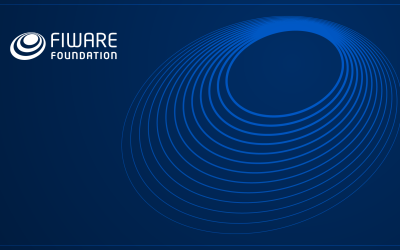Italian startup Tera is a knowledge-intensive SME that brings together years of expertise in data science and energy efficiency. Now Tera, is making use of the FIWARE architecture to create new products that harness and reduce the use of energy for business, individual households, and ‘prosumers’ (users with a small batch of photovoltaic cells often on their home roof or business).
Tera currently works with business and industry groups to conduct energy audits, and helps create custom solutions for business clients wanting to improve their energy efficiency, implement environmental monitoring or extend their smart industry opportunities.
This has given the Tera team unique expertise in web services infrastructure, hardware, wireless sensor networks and thermography. Tera is now using this expertise to enter the growing home energy management system market, which is expected to have a global market size of $3 billion within the next four years. To enter the market, Tera has built Beeta, a hardware and software product that acts as a ‘trusted advisor’ for managing energy information.
Currently, the home energy automation Internet of Things market is quite fragmented, making it difficult for households to understand what is really going on with their energy usage. Some products focus on smart thermostats and regulating the home temperature, products use different data protocols to process information, and many are unable to connect with each other to provide a global view of electricity consumption.
“When we receive energy bills, often we don’t know where is the point to slow down the bill, to save energy. How can we do it? We don’t know,” says Antonio Sacchetti, cofounder of Tera.
“But it is possible, if we first have the monitoring. And you can have this monitoring by means of a smart gateway, which is in our solution. This is able to communicate with meters, sensors, and actuators. The data is then sent to a cloud system, where we have an app so that we can involve citizens in monitoring what is happening.”
Beeta is a box with a thermostat, sensor for electric consumption monitoring, and PV storage monitoring hardware that links to a user interface with detailed analytics and alerts. Beeta can inform users of how to better manage their household electrics and encourages more responsible energy consumption. Tera estimates this can lead to savings of up to 200€ a year.
Maintaining optimum energy efficiency of photovoltaic (PV) cells is a key challenge in renewable energy systems. Households and businesses with their own photovoltaic system — which are typically 6 kW PV systems, for example — on average see an energy loss of 7% annually. This is where Beeta can offer an even greater advantage, helping create savings of an estimated €400€ per year, by more finely tuning a household’s energy consumptions by analyzing their behavior, suggesting new consumption patterns, and recommending energy storage solutions. In future, Tera hopes that Beeta will also link directly to appliances in the home, by automating tasks like switching appliances on and off and powering them into standby mode.
Behind the Beeta hardware, of course, is FIWARE architecture, making use of the Orion Context Broker, NGSI API, Cygnus and more.

Data to be analysed by Beeta can come from field sensors (e.g. temperature, humidity, presence/movement, air quality, smart meters, contact, brightness) or sent from actuators (e.g. window shutter, smart plug, 3 way valves, thermostatic valve). Beeta can understand a variety of standard protocols (such as ZigBee, Zwave, WiFi, and wired interfaces). This data is then sent (most of the time by 3G connection) to a remote cloud infrastructure (FIWARE GEs by NGSI format) which manages events and data (within Orion Context Broker GE) and allows context event processing based on specified rules and algorithms, and data storage. A graphical user interface providing alerts and feedbacks is available to encourage customer interaction.
Beeta is currently undergoing a pilot phase in Bari city in Italy, where it has been installed in private and public buildings and PV plants. The launch of Beeta on the European market is planned for the end of 2016 and early 2017.


